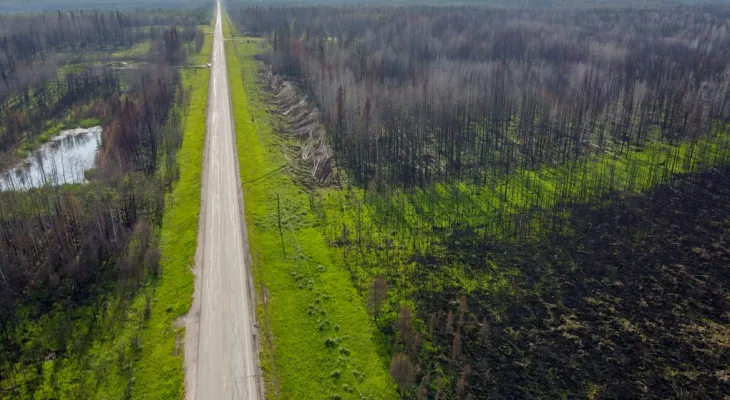Search here
Newspaper
Search here

Arab Canada News
News

Published: July 27, 2023
July is likely to be the hottest month ever, according to data just released by climate scientists.
A group of experts from around the world met on Wednesday at a press conference to report the new heat data for July, which indicates that this month will break a record.
According to Karsten Haustein, a climate scientist at Leipzig University in Germany, forecasts suggest that July may be the hottest month on Earth.
Many of you heard about the daily record earlier this month. We surpassed 17 degrees Celsius, in reference to the global average temperature, and that is basically what you will see here.
The average temperature is at least 0.2 degrees Celsius warmer than the record-breaking month of July 2019, and current forecasts suggest that the Earth hasn't been this hot for about 120,000 years.
The July predictions come in the wake of a series of data being monitored by experts to understand the impacts of human emissions on the world and the natural disasters that come with them, among which are smaller records that have been broken in recent weeks.
On July 4, the world rose to an average temperature of 17.18 degrees Celsius, making it the hottest day in at least 44 years, and June broke a record this year when the global temperature rose 1.05 degrees Celsius above the 20th-century average, marking the first time a summer month has been hotter than usual.
Although Wednesday's presentation, which was blocked until Thursday morning, came just days before the end of the month, scientists are looking forward to what they expect the final data to show.
According to Haustein's data, which compiles information from multiple weather agencies, temperatures this month are expected to range between 1.3 and 1.7 degrees Celsius above the average global temperature calculated before humans began burning fossil fuels.
This is likely to break the record for July 2019 by 0.2 degrees Celsius, which is a 174-year-old monitoring record.
Haustein said on Wednesday, which raises the question: Is it the hottest July? Typically, you would wait until the end of the month, but again, as you can tell, it is already significantly higher than the old record.
Haustein added that a weather monitoring product combines historical observations from around the world with current temperatures recorded by the global forecasting system to predict whether July will exceed the 2019 record.
He said, "At this point, it's already certain that we are in a completely new record area."
Scientists confirmed that they know July is likely to be the hottest in recent history, so they then looked to see if they could calculate whether it would be the hottest in Earth's history.
To say, "Is it the warmest in the past 100 years, or 1000, or even 10,000 years? It's a harder question to answer," said Haustein. "Before 1850, we didn't have these observations, at least not enough to say anything meaningful about the global average."
Researchers have documented temperatures for millions of years through natural sources such as tree rings, ice cores, coral, and lake sediments; this is the study of paleoclimatology.
Haustein said that comparing data collected through paleoclimatology with temperatures this month suggests that July may be the hottest month in 120,000 years, adding, "There is a good chance this month is the hottest since paleo records."
Scientists say that the consequences of the warming planet are visible across the globe not only in terms of breaking heat records but also through floods, wildfires, and severe storms.
In Canada, 4,785 forest fires have erupted across more than 12 million hectares of land, some due to increased lightning and drier-than-usual land.
Nova Scotia, which experienced the largest wildfire in its history this year, is now dealing with flooding severe enough to be described as more than a one-in-a-hundred-year event.
Some experts say that wildfires and extreme weather events have become common enough that they are driving up insurance prices..
In speaking at the presentation of record temperature data on Wednesday, an executive at a Canadian organization focused on climate change spoke about what she has noticed in recent years, saying, "My Canadian family comes from Nova Scotia, which is currently in its fourth state of emergency this past year."
Catherine Abreu said during the press conference. "I think we can all think about the horrific impacts we are witnessing in our communities from extreme climate change."
Abreu said that Haustein’s forecast serves as yet another desperate call from experts for action to slow the warming of the planet, highlighting renewable energy as one of the main ways to reduce dependence on oil and gas, allowing for what she called a more sustainable future, saying, "We need to unleash a level of ambition to address these impacts and carve our way back from this raging climate crisis."
Comments